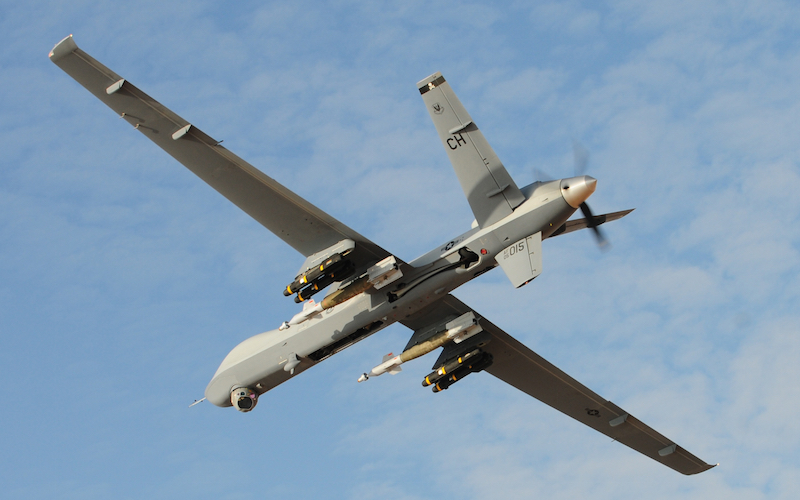
The U.S. and International Law: Q&A with Binoy Kampmark
A Commonwealth Scholar at Selwyn College, Cambridge and lecturer on politics and law in the Legal and Dispute Studies program at RMIT University, Melbourne, Binoy Kampmark has provided extensive commentary on numerous topics concerning foreign affairs and international law. With his extensive knowledge and biting wit, he has contributed to numerous publications and media organizations: Counterpunch, The Conversation, Independent Australia, National Public Radio in the United States, Radio National in Australia, Eurasia Review, as well as numerous others. Dr. Kampmark has also contributed a great deal of his opinion and analysis at International Policy Digest on a myriad of issues, such as “Netanyahu’s Vision: A World Without the ICC,” “Siege in Sydney: Terrorism and the Security State,” “Drone Mania in US Skies: Regulating the Future” to name a few.
International Policy Digest sat down with Binoy Kampmark to discuss the current questions and future issues regarding the United States, human rights, and international law.
***
Three years have passed since the Obama administration reignited political controversy surrounding the Guantanamo Bay detention center. By reversing a 2009 executive order that prevented new charges from being levied against prisoners while a new detainee policy was being conducted, Robert Gates, the then Secretary of Defense, was afforded the opportunity to bring new charges against suspects at the facility.
At the time President Obama defended the position by stressing how important the rule of law is for the United States: “I strongly believe that the American system of justice is a key part of our arsenal in the war against al-Qaeda and its affiliates, and we will continue to draw on all aspects of the justice system – including Article III courts – to ensure that our security and our values are strengthened.” Since that time, limited progress has been made.
It has been six years since the Obama administration has mentioned Guantanamo Bay in the State of the Union Address, and its closure has been added to a long list of policy initiatives. What can we expect from the administration in its remaining two years?
The Obama administration has been hamstrung on the issue of closing the camps associated with Guantanamo. Congress refuses to fund the transfers to the US mainland, and the legal limbo created has meant that those in the complex are neither charged nor found guilty, but have been so mistreated as to be deemed too dangerous to release. Other countries have also been reluctant to take them on. The result is that the camp complex will continue to function.
How has changing course from “closing the facility in one year’s time” to “closing the facility at some point” impacted the United States, the Western world, democratic processes, and/or the rule of law?
It has been appalling. The result is that a particular type of incarcerated figure has come into being: the Guantanamo inmate, one who is neither guilty nor innocent, yet too ‘dangerous’ to release. The result is, effectively, indefinite detention. (The point is also to be found in other countries, for instance, Australia, whose domestic intelligence agency has used assessments to prevent unconvicted, uncharged detainees from being released.)
By failing to close the facility, has the United States passed ‘the point of no return’ on damage to the nation’s image or can it be salvaged by any other means?
This is the damage incurred as a power desperate to punish its enemies yet pretends to do so within a legal void, or at the very least one suspended in a state of exceptionalism. The Bush administration did much to facilitate these circumstances of harm, and the Obama administration has not been able to shake it off. It may well be that this has become a norm of power relations.
The administration’s detractors have raised concerns over Washington’s waning influence in world events – pointing to the Beijing Consensus, an autocratic revival, the rise in extremist non-state actors throughout North Africa and the Middle East, etc. How accurate is this perception? Can it be corrected if the United States recommits itself in the realm of international law or human rights law?
US policy has always had several strands, some operating simultaneously (liberalism, human rights, multi-institutional on the one hand – in the supposedly Wilsonian tradition; unilateral, imperial and providential on the other, in the Bush tradition). The Obama pivot to the Asia-Pacific, the pursuit of the Trans-Pacific Partnership Agreement, all suggest a way of keeping rising powers at bay. The non-state actor issue is virtually a non-issue, but is remarkably useful to consolidate US forces, and the projection of US power (airstrikes, protective forces in enclaves etc.)
Moving on to drone warfare, Western governments, particularly the United States, have defended their use for extrajudicial killings by declaring that anyone who plots to kill its citizens can be targeted. Does this legitimize drone warfare as national self-defense and does this mean that Western governments [or any government] have a prima facie case that they have acted legally?
The use of drones as a means of self-defense via extra-judicial killings is questionable. It can be argued that, in a conflict area recognized as such, that drones are the same as other weapons, used to target combatants. But the US has been using them in areas of non-declared conflict (Waziristan, Yemen), which makes them weapons of assassination rather than ‘self-defense.’ Much of this is brought under such vague, extensive instruments as the Authorization of the Use of Force, which effectively permits the use of weapons across a range of conflict situations.
Should there be a judicial review process for these state-sponsored extrajudicial killings – ‘a trust but verify’ approach – rather than allowing government’s carte blanche over these operations? Can the West adapt this new technology to its principles?
While it is deemed unrealistic to use judicial procedures in times of war, it is not inappropriate when assessing instances where an individual, a US citizen, say, is on a target list. It has been revealed that a special form of “Americanism” is applied in cases of drone strikes – a person who is a US citizen but is accused (accused as opposed to actually charged) of targeting the US or its interests, has surrendered his or her rights connected with the Constitution.
Putting aside their legality and morality, drones have been somewhat effective. Already with some countries fast tracking their own drone programs, do you envision a “drone arms race” in the near future?
Yes. They do the ‘dirty’ jobs. They minimize human involvement while maximizing military (or non-military) effect. A drones arms race will occur, not merely in the military sense, but the civilian sphere, with the delivery of services, or the monitoring of crowd behavior.
In many countries, the fight for human rights centers on a nation’s efforts to combat corruption and abuse – as well as combating trafficking, slavery, arbitrary arrests, extrajudicial actions, and numerous other assaults on individual freedoms. Generally speaking, is it fair to say that the Western world struggles to comprehend this reality and, instead, prefers to perceive human rights as an abstract struggle pertaining to political freedoms and crimes against humanity? What is lacking in this perspective?
Human rights has always been a battle front, a political field of struggle. For that reason, they are deemed abstractions, subjects for manipulation. What is missing from this perspective is a distinct lack of awareness that power determines such rights, and that such power just as easily undermines them.
In this sense, the Marxist critique of human rights seems to be relevant when it comes to dealing with the forced “democratization” of states and regime change by Western powers. Look behind the powers that be, and see who or what is really in control. It is hard, after all, to be humanitarian at the end of a Tomahawk missile.
The US has signed but failed to ratify the United Nations Convention on the Rights of People with Disabilities, the United Nations Convention on the Elimination of Violence Against Women, and the United Nations Convention on the Rights of the Child. Moreover, it remains a non-signatory to the Ottawa Treaty and many other human rights-based initiatives. How does this impact the United States’ standing in the international system, regarding its vocalized commitment to human rights and its desire to remain at the forefront of instilling human rights standards and strengthening current norms?
The absence of a US signature is significant, though not ultimately detrimental to the working of norms in human rights. International customary law and treaty law can still function notwithstanding the absence of a US signature, though it means that US violations will not find a hearing. It is important to understand that US delegates tend to be instrumental in writing such documents, while Congress is vital in preventing their signature and ratification. The reason, as ever, is sovereignty and power. Congress would rather see such human right observances kept within, rather than without, the US.
In order to move forward in developing a strong adherence to international human rights standards, the world needs a leader that will move beyond rhetoric and begin to show progress through action, even if the topic does not garner strong political support domestically. In your view, what progress has the Obama administration made in strengthening the United States’ position on human rights issues? Have expectations been met or do you believe an opportunity has been squandered?
The Obama administration promised much: transparency, open government, winding back the torture regime, a range of whistleblower protections, the closure of Guantanamo Bay, a withdrawal from certain zones of conflict, a medical-based system with state backing. But all of these have either been defeated or qualified. There have been changes made, albeit unsatisfactory, in the area of unwarranted surveillance – but there is a sense that the administration can do more. The corporate agenda, one that is, in many ways, in violation of human rights (ecological undermining of environments; corporations taking states to court for lost profits) has continued to thrive. Guantanamo remains in place. The torture advocates have been exonerated. His position on drones, one that allows extra-judicial assassination, is suspect, yet justified within the confines of self-defence.
